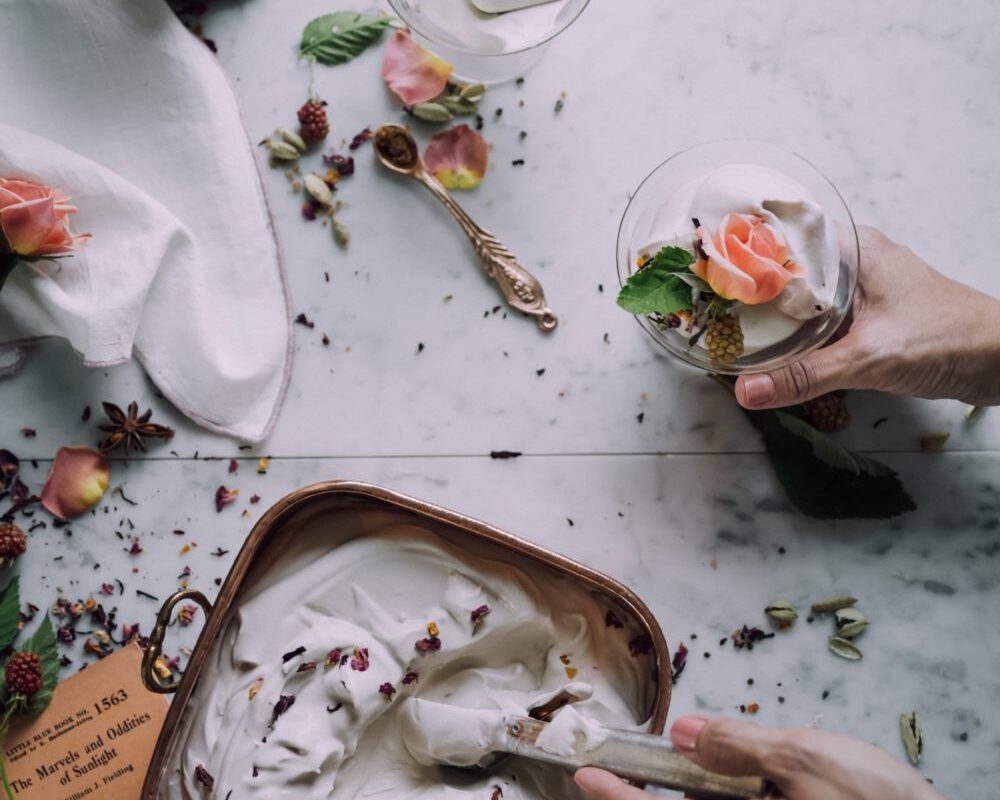Mary Poppins said that “a spoonful of sugar makes the medicine go down,” but deviate from her advice even slightly in the temptation for a little extra, and you are in trouble. Less is more when it comes to processed white sugar, a food staple that is lately being observed as the root of most modern day lifestyle malaises such as obesity, diabetes and heart diseases. The ‘sugar’ that is needed by the body to maintain normal blood sugar levels can be naturally derived from a well-balanced meal consisting of fruits, vegetables and grains. Processed white sugar is high in fructose and can overload the liver, turning the fructose to fat. What’s more, sugar is addictive. It causes dopamine to be released, which experts claim is the same response activated by addictive drugs. This leads to cravings and overeating. White sugar does not provide the body with any nutritional benefits except energy, as it’s a simple carbohydrate that gets quickly absorbed in the body. This is probably why many health experts have started the no-sugar movement.
Zero-calorie is not always healthy
Swearing off table sugar doesn’t mean that you fall prey to synthetic alternatives such as Sucralose (Splenda), Aspartame (Equal, NutraSweet), Saccharin (Sweet N’ Low), and Acesulfame (often found in sodas, fruit juices and dairy products). Dr Harpreet Pasricha, nutritionist and diet consultant, explains, “Due to an increase in health awareness, there is a demand for low-calorie food products. Here’s where artificial sweeteners (originally used as a replacement to sugar for diabetes) are now [being] used for weight loss. Using artificial sweeteners like sugar-free tablets or powders is equally bad if not worse, since it’s synthetic and almost 2,000 times sweeter than sugar. Frequent use may change the way we taste our food, which means we may find milder foods like fruits or unsweet foods such as whole grains and vegetables less appealing, and sweeter foods such as diet soda or coke more tempting. Also, sugar alcohols like xylitol and erythritol can wreak havoc on your digestion, gut health and kidney function.” So the next time you pick up a sugar-free tablet, remind yourself of its cost. The recommended way is to stop using sugar altogether, or have a restricted quantity of about a teaspoon per day. However, this may not always be possible, and it is more sustainable to go towards natural nutrient-rich alternatives to sugar.
Transform the way you cook with sugar
At Atmantan Wellness Resort near Pune, which is famous for its weight loss and detoxification retreats, you won’t find refined sugar on campus. But the in-house restaurant still offers four-course gourmet meals, including desserts that use naturally-sweet ingredients such as dates, honey and jaggery. “We understand that in the long run, it’s not realistic for our guests to be deprived of any food cravings. So we encourage them to transform the way they eat and cook. The idea is to inculcate mindful eating, practice portion control and focus more on nutrients than just superficial calories,” states Nikhil Kapur, Ironman Triathlete and co-founder director of the resort.
Some natural sweeteners like coconut, cinnamon, dates, prunes, dark chocolate or raisins can be added or consumed for sweetness in food. “Date syrup can also be added to oatmeal, fruits and custards. Jaggery could be used in tea and coffee. At home, I make pancakes for my kids using wheat flour, milk, egg and jaggery instead of maida and white sugar,” adds Dr Pasricha. At The Imperial New Delhi, executive , is persistently curating meals which are delicious but also nutrient-rich. He uses maple syrup, barley malt syrup, date sugar, stevia and coconut sugar in many of the dessert recipes. Always game to stir up something bespoke for guests with food allergies and health preferences, Pogakula states, “There are so many sugar alternatives in the market these days that it can be a chore to simply decide among them, let alone figure out how to use them in your day-to-day diet. One critical factor in your decision should be your reason for reducing sugar—is it general well-being, weight management or some other health concern?”

A glossary of the top seven natural alternatives to sugar
Honey
Raw organic honey is undoubtedly one of the best substitutes to white sugar as it’s rich in antioxidants, disease-fighting flavonoids and vitamins. It is great for managing cholesterol, boosting immunity and keeping weight in check. “Since honey contains propolis and bee-pollen, it has also been proven to help with asthma, allergies, diabetes, sleep problems, coughs and wound healing,” adds Dr Manoj Kutteri, wellness director at Atmantan Wellness Resort.
Jaggery
Jaggery or gur is made from unrefined sugar and is loaded with antioxidantsand several minerals including selenium and zinc, which arrest early signs of ageing. It is a great laxative and helps to detox the system and prevent constipation. It has earned the repute of being respiratory-friendly and a liver-cleanser as well.
Dates
Dates are not just regarded as a sugar substitute, but a wholesome superfood in itself. It’s rich in calcium, iron, phosphorus, potassium, magnesium, zinc and dietary fibres. Dates are also an important source of iron and can be used to treat anaemia. The slightly thicker consistency of date syrup makes it great for baking. The glycemic index of dates is high, though, and hence moderation is recommended, warns Dr Pasricha.
Coconut sugar
It might be a good idea to swap your regular sugar (empty calories) with nutrient-rich coconut sugar. The latest coconut by-product to gain popularity, this sugar is made from heat-treating the sap from the flower buds of the coconut palm tree, until the liquid has evaporated. It is high on calcium, potassium, iron and many antioxidants but low on fructose, when compared to regular sugar. Dr Kutteri explains, “It also contains a fibre known as inulin which has the ability to slow down the glucose absorption. For this reason, coconut sugar is regarded as one of the low GI sugars. They are also friendly to the gut flora.” It comes in generally all forms, solid and liquid, but chef Pogakula prefers the granule form due to its similarity to normal table sugar. However, it’s not low on calories per se, so don’t go overboard.
Stevia
A leaf of a plant native to South America is ground into a powder called stevia. Why is this witnessing a meteoric rise in popularity? It tastes like sugar, is all natural and hardly contains any calories. It is many times sweeter than processed sugar, so less is required. However, it is non-nutritive compared to the other options and there is no real evidence that points out that switching over to stevia helps in weight loss.
Maple syrup
The sap taken from maple trees is heat-treated, causing much of the water to evaporate, leaving the concentrated sticky syrup. “While it is a lot less sweet than honey, it retains its taste even in the heat, which makes it great for incorporating into cooking. The syrup can be used in the same ratio as sugar,” advises chef Pogakula. Opt for darker varieties, which are known to contain higher traces of antioxidants.
Barley malt syrup
A dark brown, sticky and thick sweetener produced from barley, it is about half as sweet as normal refined sugar and has a rich, toasted taste. It also comes in a granulated form, which makes it a good substitute for brown sugar, and is a slow-digesting product. However, since the sweetener is extracted from barley, people with gluten intolerance should be wary and avoid it.
So go ahead and indulge your sweet tooth, but do note that all these alternatives are nutrient dense and therefore have to be used in limited quantities. They are lesser evils, not sin-free treats.
The article was first published in vogue.in





